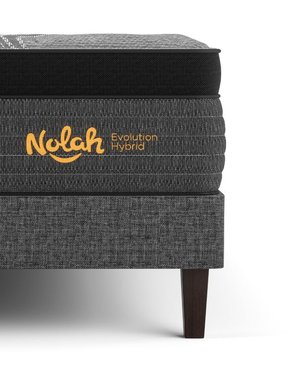How To Sleep With a Cold and Cough (Best Sleep Positions)
Getting quality sleep is essential to recovery when you have a cough, cold, sore throat, or another sickness. Unfortunately, the symptoms that come with these illnesses can make falling asleep and staying asleep more difficult.
To get the rest you need for recuperation, you may need to sleep in a different position than usual. This guide will cover the best sleep positions for when you're sick, plus we'll discuss additional tips and tricks for getting restorative sleep when you have congestion, a runny nose, a cough, or other ailments.
Best Positions to Sleep with a Cold and Cough
You likely have a favored sleep position that feels natural and lets you fall asleep fast most nights. However, cough and cold symptoms can complicate the process and make it hard to get comfortable in your usual position. When you wake up in the morning, you may also find some of your symptoms have worsened overnight due to post-nasal drip.
To help combat these symptoms and make sleeping with a cold easier, try one of the following positions instead:
Sleep on Your Side
Lying on your side helps keep your airways open, which is essential to falling asleep and staying asleep when you have a cold. Sleeping on your side helps drain mucus, eases congestion, and assists with digestion. It also helps prevent snoring, which often worsens when you have a cold or the flu.
Sleeping with your head raised will open your airways, making breathing easier and minimizing mucus accumulation.
Elevate Your Head
If you can't get comfortable on your side, it's OK to sleep on your back as long as you elevate your head to lessen congestion. You can stack a couple of thinner pillows, try a wedge pillow, or use the elevated anti-snore setting if you have an adjustable base. Sleeping with your head raised will open your airways, making breathing easier and minimizing mucus accumulation. Avoiding post-nasal drip can also assuage the urge to cough.
More Tips for Sleeping with a Cold and Cough
In addition to modifying your sleep position, you can try a few tricks and tips to remedy the specific cold symptoms that stand in the way of a good night’s sleep. For example:
Soothe a Sore Throat
A sore or scratchy throat can cause irritation and coughing that keeps you awake for hours. To fall asleep fast, treat your sore throat symptoms in the hours leading up to bed. You can try cough drops, drinking water, sipping on herbal tea with honey, and gargling warm salt water.
Keep Your Room Cool
To support your natural circadian rhythm, you always want to let your core temperature drop leading up to bedtime and while you’re asleep. For most people, that means setting the temperature to 60 to 67 degrees Fahrenheit.
If you have a cold or the flu, your body temperature is likely elevated. So, to support your sleep, you may want to set your thermostat slightly lower than usual. You can always keep extra blankets on hand in case you run a chill.
Run a Humidifier
According to the Mayo Clinic, running a cool-mist humidifier can help relieve the symptoms of a cold or other respiratory conditions. Just make sure your humidifier is clean and that you don’t allow too much moisture in the air.
Take a Steamy Shower Before Bed to Ease Chest Congestion
Taking a hot shower before you head to bed can help ease congestion symptoms. Breathing in the steam helps loosen congestion-causing mucus and clears out your nasal passage, making it easier to breathe.
Try Nasal Strips
Nasal strips, often used to combat snoring, can also help you breathe easier and fall asleep when you have a cold. These dilator strips pull the sides of your nose, widening the airway and increasing airflow.
Apply a Vapor Rub Before Bed
Many people swear by the cool, soothing effect of applying a vapor rub to your chest, throat, and below the nose. As explained by the Mayo Clinic, products like Vicks VapoRub don’t actually relieve nasal congestion, but they can trick your brain into thinking so. And if you feel the impact, it may help you doze off easier.
How Much Sleep Do You Need When You’re Sick?
You need quality sleep to support your immune system, so rest is essential to getting better and fighting off future sickness. When you have a cough or cold, you want to do everything in your power to get the sleep you need.
While you typically want to keep to a consistent sleep schedule to strengthen your circadian rhythm, you should budget more time for sleep than usual when you’re sick. According to Medical News Today, you can add an extra hour of sleep at night and take a nap or two during the day.
Hopefully, an adjusted sleep position and a few symptom-specific remedies will help you fall asleep and stay asleep despite your illness, and you'll be back on your feet in no time.
Disclaimer: Nolah does not provide medical advice. All resources on the Nolah blog, including this article, are informational only and do not replace professional medical counsel. Talk to your doctor about any health, mental health, or sleep-related issues.
You May Also Like These Articles
Don't Sleep on Exclusive Offers
Sign up for our newsletter, and you'll be the first to know about discounts, deals, and what's new at Nolah.
Ready for Bed?
